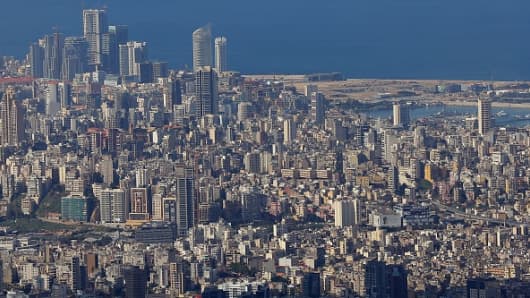Beirut, Lebanon — The death last month of a top Hezbollah
commander in Syria prompted proud eulogies from the party’s leadership,
satisfaction from his enemies – and, in a quiet suburb of The Hague, a
legal quandary. For Mustafa Badreddine was not only a veteran
Hezbollah commander who oversaw the party’s military intervention in
Syria. He is also being tried in absentia by an international tribunal
for helping to organize the 2005 assassination of Rafik Hariri, a former
billionaire prime minister who was killed, along with 22 other people,
in a massive truck bombing in central Beirut.
Although Badreddine
was given a full public funeral and his body lies buried in Hezbollah’s
“martyrs” cemetery in southern Beirut, the Special Tribunal for Lebanon
(STL) has concluded that his trial would continue. The Judges do not believe that sufficient evidence has yet been
presented to convince them that the death of Mr. Badreddine has been
proved,” the STL said in a statement last week.
The STL’s decision has hardened the perception among many in Lebanon
that the tribunal, which is tasked with uncovering and prosecuting Mr.
Hariri’s killers, has failed in its core mission. After 11 years and
hundreds of millions of dollars, those that ordered Hariri’s murder and
the motive behind the assassination are still unknown and the subject of
intense and conflicting speculation. The only men currently on trial
are Badreddine and four other Hezbollah men, who are alleged to have
been foot soldiers rather than architects of the assassination plot.
“[The
STL] has been beneath all expectations … it’s a case of justice
delayed, justice denied … and this idiotic rejection of the death of
Badreddine is another expression of their surreal impotence,” says
Chibli Mallat, presidential professor at the University of Utah and
author of “Philosophy of Nonviolence: Revolution, Constitutionalism, and
Justice beyond the Middle East.”











